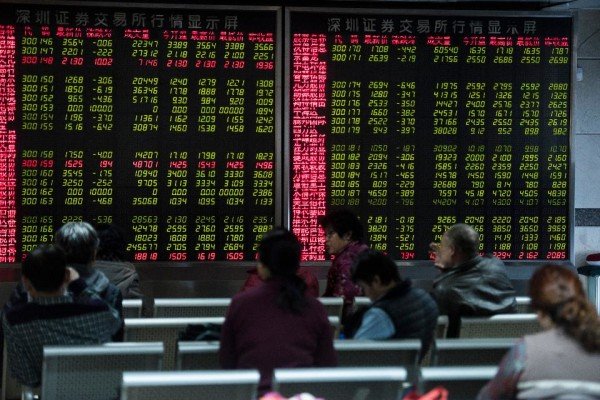China stock market traded higher on January 6, recovering some of the steep losses made earlier this week on concerns about the economy.
The Shanghai Composite index was up 1.8% to 3,348.22 as measures from regulators to support the stock market started to have an impact.
Local reports said the securities regulator would keep in effect its ban on share sales by major shareholders until new rules were released.
The ban was set to expire on January 8.
It was put in place six months ago at the height of the mainland stock market sell-off over the summer and locked up an estimated 1.24 trillion yuan ($190 billion) worth of shares.

The 7% plunge in the Shanghai market on January 4, which led to the suspension of trading for the first time, triggered a global equities rout.
Beijing’s decision on January 5 to inject cash into the falling market also helped soothe fears.
Economic data that suggested activity in China’s services sector expanded at its slowest pace in 17 months in December had little impact on investors’ confidence.
The Caixin/Markit purchasing managers’ index (PMI) fell to 50.2 from 51.2 in November. A reading above 50 suggests growth in the sector, while one below that suggests contraction.
Hong Kong’s Hang Seng index failed to match the positive run from the mainland market and was down 0.7% to 21,042.89.
Traders in the rest of Asia were cautious after a North Korean nuclear test heightened geopolitical tensions.
North Korea claimed that it had successfully tested a hydrogen bomb on January 6, drawing widespread criticism from around the world.
South Korea’s Kospi index finished down 0.3% to 1,925.43, but the index was already lower before the news of the bomb.
Japan’s Nikkei 225 index ended lower by 1% to 18,191.32, while Australia’s S&P/ASX 200 closed down 1.2% to 5,123.1.
Shares of Japanese electronics maker Sharp fell 3.3% after reports that the troubled tech company is expected to book an operating loss of at least 10 billion yen ($84 million) for the nine months to December.
